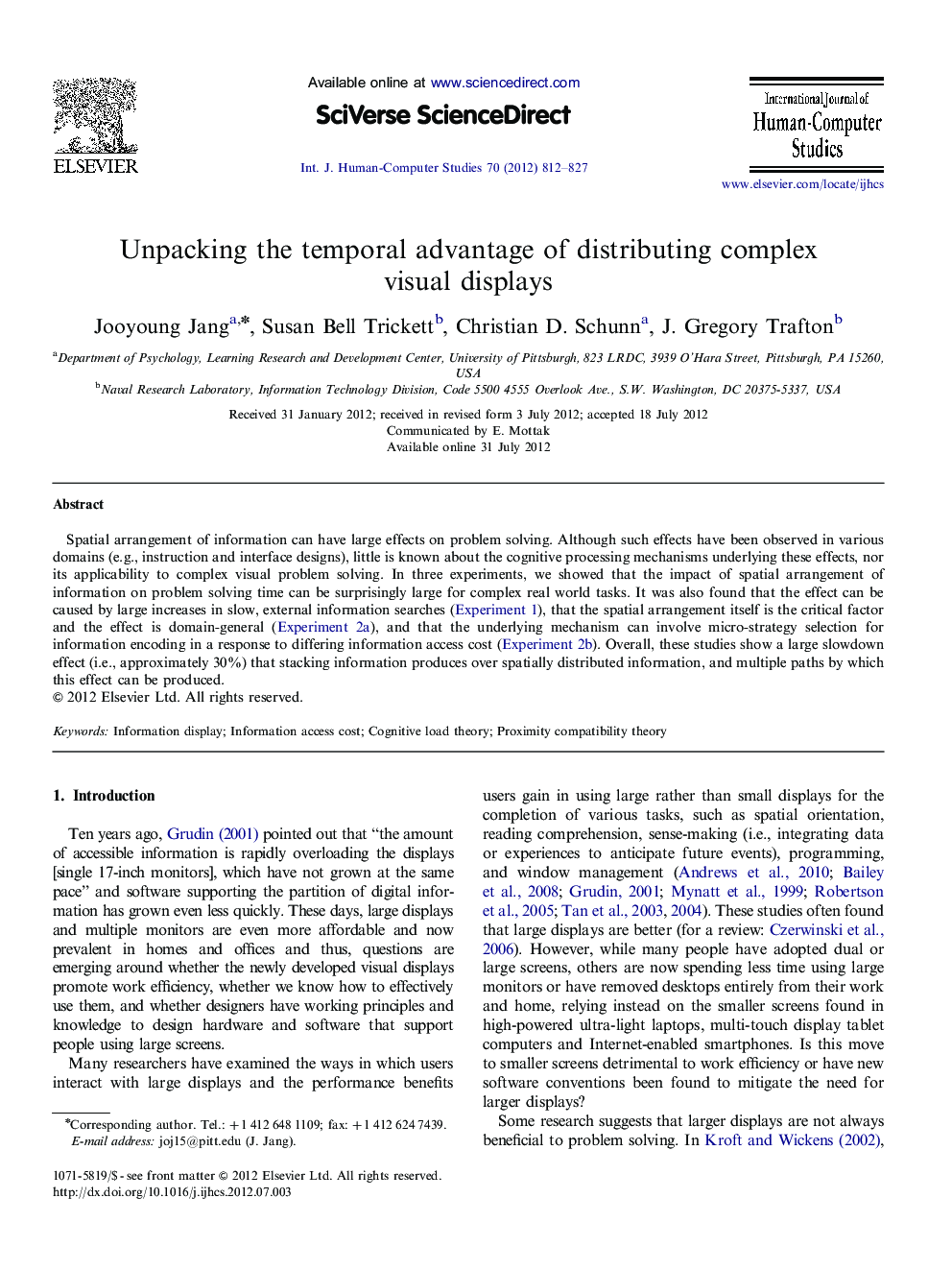| کد مقاله | کد نشریه | سال انتشار | مقاله انگلیسی | نسخه تمام متن |
|---|---|---|---|---|
| 401195 | 1439003 | 2012 | 16 صفحه PDF | دانلود رایگان |

Spatial arrangement of information can have large effects on problem solving. Although such effects have been observed in various domains (e.g., instruction and interface designs), little is known about the cognitive processing mechanisms underlying these effects, nor its applicability to complex visual problem solving. In three experiments, we showed that the impact of spatial arrangement of information on problem solving time can be surprisingly large for complex real world tasks. It was also found that the effect can be caused by large increases in slow, external information searches (Experiment 1), that the spatial arrangement itself is the critical factor and the effect is domain-general (Experiment 2a), and that the underlying mechanism can involve micro-strategy selection for information encoding in a response to differing information access cost (Experiment 2b). Overall, these studies show a large slowdown effect (i.e., approximately 30%) that stacking information produces over spatially distributed information, and multiple paths by which this effect can be produced.
► We examined the effect of spatial organization of information on complex problem solving.
► We examined the benefits of distributed displays in terms of human information processing.
► The impact of spatial arrangement was surprisingly large for complex real world tasks.
► The underlying mechanism involves micro-strategy selection for information encoding.
► It connects the gaps between cognitive theories and human–computer studies.
Journal: International Journal of Human-Computer Studies - Volume 70, Issue 11, November 2012, Pages 812–827